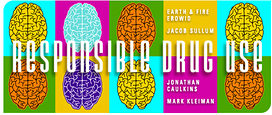Jacob Sullum asks whether I’d favor alcohol prohibition. Under existing U.S. conditions, I wouldn’t. There’s no public support for it. Compliance would be poor, and the illicit market large. The amount of public force required to overcome such a strong cultural pattern is greater than the evils of alcohol can justify. Cocaine is different, not especially because it’s more dangerous (I don’t think we know that, and in fact what I’d be most worried about is use of the two drugs together) but because there are fewer cocaine users.
Were I asked to legislate for a nation where alcohol was currently banned and where drinking was not currently a well-established practice, I’d be inclined to leave the law as it was. Why import a drug problem you don’t already have?
But since neither alcohol prohibition nor cocaine legalization is in the set of potentially politically feasible options, it might be more productive to talk about things we could do to reduce the damage done by alcohol and by cocaine without changing the legal status of either drug.
The average tax on a drink (about three-quarters of an ounce of absolute alcohol) in the form of a 12-ounce can of beer is about a dime. The tax on alcohol packaged as wine is somewhat less, on spirits somewhat more. Doubling those taxes would reduce the rates of homicide and motor-vehicle fatalities by several percent. The burden on moderate drinkers would be light: At two drinks a day, the tax increase would be about $6 per month. I support that increase. (I would support an even larger increase if I thought it had a chance of passing into law.) How about you, Jacob?
Right now, someone convicted of drunken driving loses his license to drive. But his license to drink is irrevocable, no matter how badly he behaves under the influence. I support a proposal originally offered by John Stuart Mill: a “specific prohibition” on drinking (for some period of time) for those convicted of drunken driving, drunken assault or sexual battery, or repeated instances of disorderly conduct under the influence. That prohibition would have to be enforced by the sellers; in effect, everyone would have to be “carded” before buying a drink or a bottle or a six-pack, just as youthful-looking buyers now are, and the driver’s license or other identity document used to establish age would have to be re-issued after a conviction to make it not usable as a “drinker’s license.” Here we are dealing with people whose drinking has already caused them to violate the rights of others. Jacob, can I count on your support?

